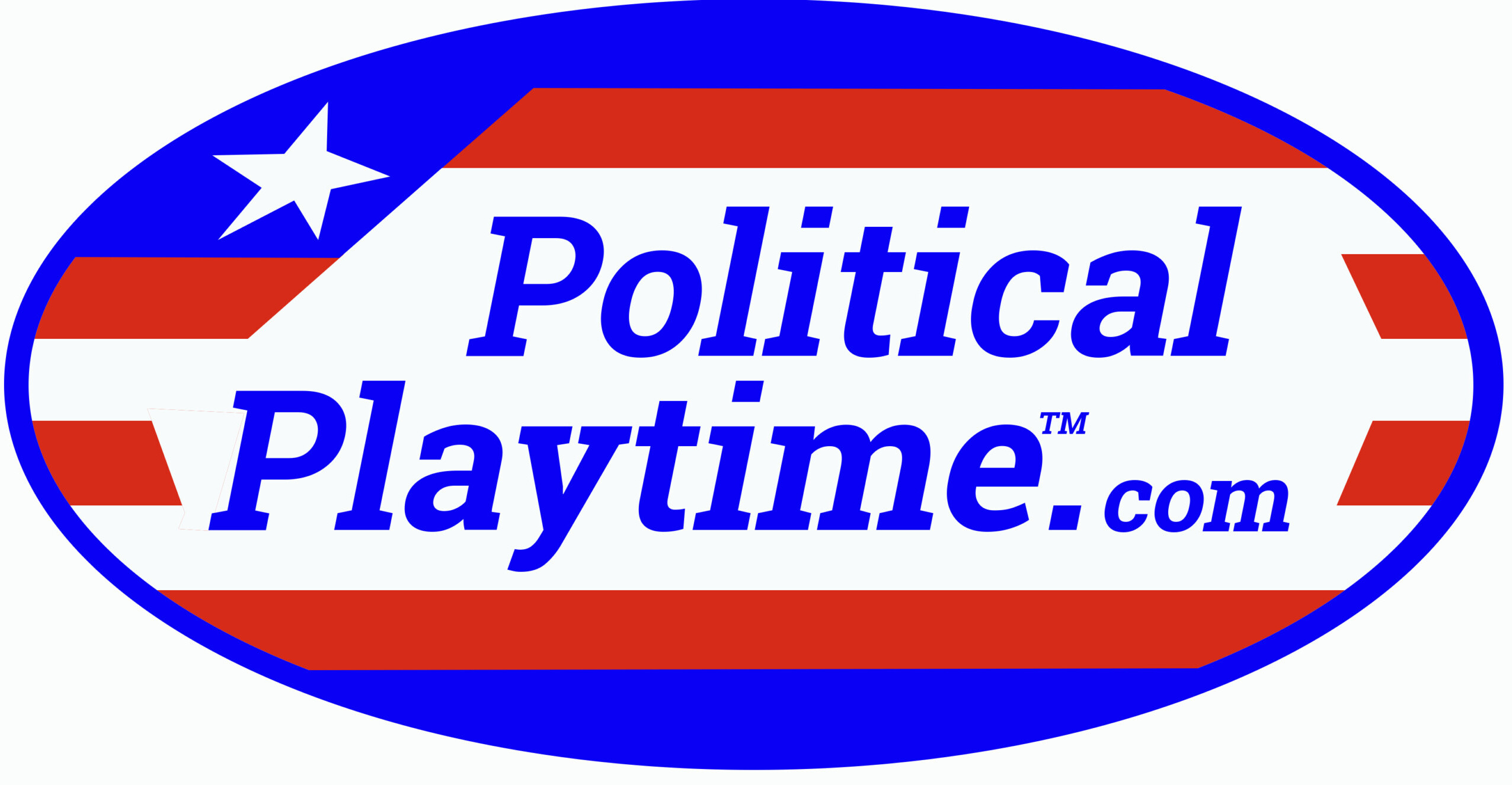How Trump and His Allies Have Attempted to Stifle Speech While Praising “Free Speech”

By Political Playtime
Donald Trump and his allies in government have repeatedly tried to silence, intimidate, or punish speech they dislike. They often pair these efforts with rhetoric about defending “free speech,” creating a paradox. Below is a fact-based analysis, grouped by tactic.
Speech to Joint Session of Congress, March 2025
In that address, Trump said: “I’ve stopped all government censorship and brought back free speech in America. It’s back.”
1. Lawsuits and Legal Threats Against Media Outlets
- “Open up the libel laws.” Trump promised to weaken libel protections, despite New York Times v. Sullivan protecting press freedom.
- Defamation suits. His campaign and allies filed a series of libel lawsuits against The Washington Post, New York Times, CNN, and even pollsters like Ann Selzer. Nearly all were dismissed, but the cost and chilling effect remain.
- Pattern: Even if legally unsuccessful, litigation functions as punishment through financial and reputational strain.
2. Regulatory Threats and the FCC as a Weapon
- License threats. Trump suggested revoking ABC and NBC’s broadcasting licenses for negative coverage, despite FCC authority being limited.
- Section 230 order. In 2020, EO 13925 sought to reinterpret Section 230 to punish platforms for moderating speech—framed as protecting “free speech” but chilling editorial decisions.
- AT&T–Time Warner merger. DOJ’s effort to block the merger was widely seen as retaliation for CNN’s coverage.
- Jimmy Kimmel case (2025).
- After Kimmel mocked MAGA reactions to Charlie Kirk’s murder, FCC Chair Brendan Carr condemned him, hinting at regulatory punishment.
- Some affiliates pulled the show; Disney/ABC suspended it for five days before reinstating under public pressure.
- Why it matters: This is a vivid example of regulatory pressure directly chilling satirical commentary, a protected form of speech.
- Pattern: The FCC and regulatory rhetoric become levers for pressuring private broadcasters into silencing critical or comedic voices.
3. Retaliation Through Press Access
- Jim Acosta (2018). White House revoked his press pass; courts intervened.
- Brian Karem (2019). Pass suspension overturned by courts.
- Associated Press exclusion (2025). AP sued after officials allegedly denied access unless they adopted Trump-approved terminology (“Gulf of America”).
- Pattern: Selectively blocking journalists is a recurring tactic, repeatedly struck down by courts as viewpoint discrimination.
4. Surveillance and Intimidation of Reporters and Critics
- Reporter phone records (2017–2020). DOJ secretly seized records of NYT, Washington Post, and CNN reporters during leak probes.
- Anonymous critics (2017). DHS tried to unmask @ALT_USCIS, an anonymous Twitter critic; Twitter sued, government withdrew.
- Assange prosecution. The Espionage Act case alarmed press-freedom advocates, threatening investigative journalism.
- Pattern: These actions signal that critical reporting or anonymous dissent could invite aggressive government pursuit.
5. Prior Restraints and Book Bans
- John Bolton’s book. DOJ sought to block publication; courts rejected the prior restraint.
- Other insider books. Trump and allies threatened lawsuits against Omarosa Manigault Newman and even family members, aiming to suppress unflattering accounts.
- Pattern: These moves attempt to gag insiders before they can share information, in direct conflict with First Amendment tradition.
6. Politicizing State-Funded Media
- VOA / USAGM (2020). Trump appointee Michael Pack fired leadership, meddled with editorial independence, prompting lawsuits and IG findings of abuse.
- VOA lawsuits (2025). Journalists and groups sued over new Trump orders dismantling USAGM, alleging First Amendment and statutory violations.
- Pattern: These efforts seek to turn taxpayer-funded media into partisan mouthpieces, undermining their credibility abroad.
7. Economic Pressure as Punishment
- Amazon/Bezos/USPS. Trump pressed USPS to hike package rates to punish Jeff Bezos, who owns The Washington Post.
- Public broadcasting funding. EO 14290 (2025) sought to end federal support for NPR/PBS, explicitly citing alleged bias. Lawsuits are pending.
- Pattern: Cutting revenue streams or threatening corporate finances becomes a tool of indirect censorship.
8. Silencing Academics and Pollsters
- West Point professor Tim Bakken. Filed a class action against prior approval rules for faculty speech and book removals—arguing academic censorship.
- Ann Selzer / Des Moines Register. Trump sued over unfavorable poll results, treating polling as hostile speech.
- Pattern: Attempts to delegitimize or legally burden knowledge-producers and pollsters chill academic and political discourse.
9. Social Media and Ordinary Citizens
- Knight Institute v. Trump. Trump’s blocking of Twitter critics was ruled unconstitutional viewpoint discrimination.
- Pattern: Even ordinary citizens faced silencing attempts when their speech reached Trump in official forums.
Additional Cases of Silencing / Chilling Speech
| Person / Group | What Happened / How They Were Targeted | Why It Matters / Legal/Practical Implications |
|---|---|---|
| Associated Press (AP) | AP is suing White House officials (Press Sec, Deputy Chief of Staff, Chief of Staff) in Associated Press v. Budowich for being excluded from certain White House events unless AP would refer to the “Gulf of America” instead of “Gulf of Mexico.” Wikipedia | This is an example of viewpoint discrimination: conditioning access on using preferred terminology. If allowed, it would set a precedent that government can demand words from the press in exchange for access. |
| Voice of America (VOA) journalists / USAGM | Six VOA journalists, labor groups, & press freedom orgs sued Trump administration officials over an executive order that dismantled the U.S. Agency for Global Media (USAGM) and attempts to control/editorially influence VOA & related outlets. Plaintiffs argue this violates First Amendment and federal law (including firewall protections). The Washington Post | State-funded media (VOA, RFE/RL, etc.) serve international audiences and are supposed to maintain editorial independence. Efforts to politicize them can degrade credibility, harm U.S. soft power, and threaten press freedom norms. |
| NPR and PBS | Through Executive Order 14290 (“Ending Taxpayer Subsidization of Biased Media”) signed May 2025, Trump directed ending federal funding for NPR and PBS, alleging bias. These orgs (and CPB, etc.) responded by suing. Wikipedia+1 | Cutting or threatening funding of public broadcasters for alleged bias can punish speech indirectly—public media often serve less commercial communities. Legal questions over whether the order violates statutory protections and whether bias is a lawful criterion for cutting funding. |
| West Point faculty / law professor Tim Bakken | A professor (longest-serving civilian law professor) at West Point filed a class action suit arguing that there is censorship through a new “Academic Engagement Policy” requiring faculty to get prior approval for speaking or publishing; also alleging removal of controversial books, oversight, etc. Reuters+1 | Academic freedom is a protected subset of free speech doctrine, especially in public institutions. Requirements for prior approval can create a chilling effect on speech and writing; also raises due process concerns. |
| People blocked on social media by Trump | Knight First Amendment Institute v. Trump involved several Twitter users who were blocked by @realDonaldTrump. They sued saying that because Trump’s account was used for official business, it was a public forum and blocking critics violated First Amendment. The Second Circuit agreed. Wikipedia | This case represents how even non-journalists / ordinary individuals can have their speech rights impacted when interacting with government actors on social media. The case affirmed constitutional protections for viewpoint discrimination in that context. |
| Ann Selzer & Des Moines Register (pollster / local media) | Trump filed a lawsuit over a poll (by Ann Selzer and the Des Moines Register) showing Kamala Harris leading just days before an election; he called it “election-interfering fiction.” This shows legal threats against not just big national media but local outlets and pollsters. PBS | Threats to pollsters & local media for reporting data or analysis that’s unfavorable risks undermining election reporting and poll integrity; might deter certain reporting out of fear of litigation. |
| PBS, CPB, Public Broadcasting Act entities | Beyond NPR/PBS funding, there are also moves to remove board members, cut funding, question mandates under Public Broadcasting Act. Legal suits have been filed. Wikipedia+1 | These public institutions are partially protected under statute; changing their funding or oversight for political reasons could violate both constitutional (free speech / viewpoint discrimination) and statutory constraints. |
| NPR, PBS, NPR‐/PBS‐funded journalists/works | In addition to funding threats, there’s also broader pressure & rhetoric around “biased” media, labeling them enemies or unfair voices, which can provoke self-censorship or shifts in coverage. (Many reports from watchdogs, press freedom orgs highlighting such chilling effects.) Fast Company+1 | Even when legal challenges aren’t always successful, the threat of funding loss, regulatory scrutiny, or being labeled “biased” by powerful actors can cause media outlets to modify behavior, avoid critical stories, or soften their criticism. |
The Paradox
While praising “free speech” as a principle—especially for allies or controversial voices on the right—Trump and his government have used litigation, regulatory pressure, funding cuts, press pass denials, surveillance, and access threats to stifle speech they dislike.
Bottom line: Courts, watchdogs, and public backlash have stopped many of these attempts, but the pattern shows that the process itself—threats, lawsuits, regulatory pressure—serves to chill expression and burden critics, even if the government ultimately loses.




